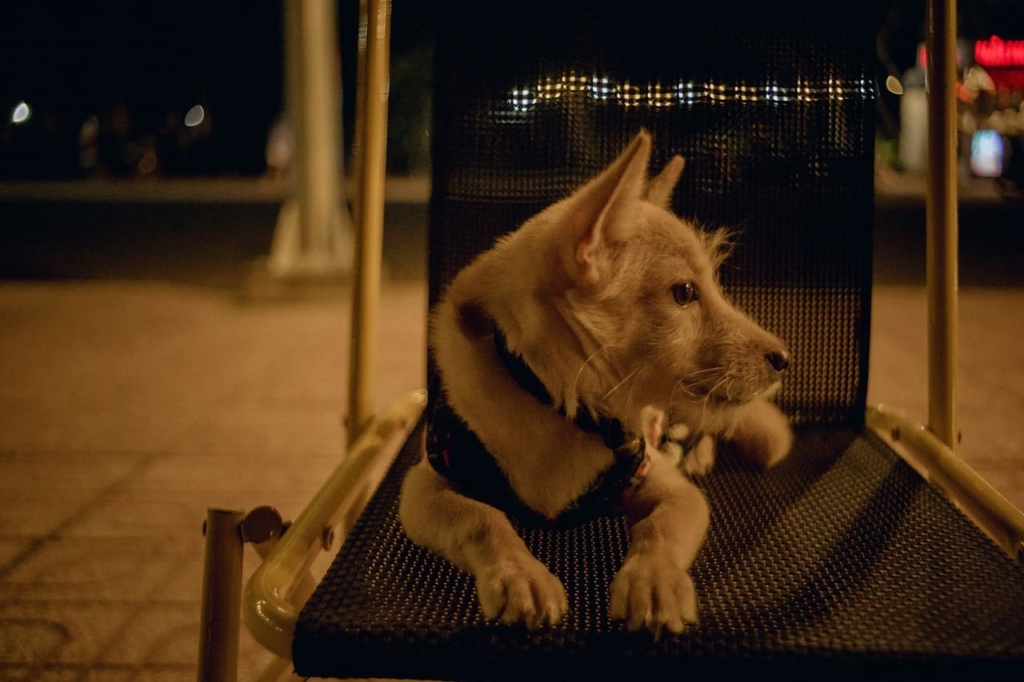Why Dogs Cry at Night? Unravelling the Canine Nocturnal Serenade
For many dog owners, the nighttime serenade of their canine companions can be a puzzling and sometimes frustrating experience. As the sun sets and the world quiets down, some dogs begin to exhibit behaviours that include whimpering, howling, or barking, leaving their human counterparts wondering, “Why dogs cry at night?” While this behaviour might seem random, there are specific reasons behind it that relate to their innate nature and emotional needs.
Understanding Dog Behavior

The Nocturnal Nature of Dogs
Dogs are descendants of wolves, and their nocturnal instincts have been passed down through generations. In the wild, wolves are most active during dawn and dusk, making nighttime an essential part of their routine. Domesticated dogs still retain some of these nocturnal tendencies, which can manifest in various ways.
Dogs’ Enhanced Hearing
One of the primary reasons dogs cry at night is their exceptional sense of hearing. Dogs can detect sounds at higher frequencies and at greater distances than humans. Nocturnal sounds, such as distant sirens, rustling leaves, or even other animals, can trigger their instinct to respond vocally.

Dogs’ Sensitivity to Environmental Changes
Dogs are highly attuned to changes in their environment. During the night, the atmosphere is usually quieter, allowing them to notice even the slightest disruptions. These changes might include shifts in temperature, unfamiliar scents, or the presence of nocturnal animals. Such changes can create a sense of alertness and may lead to vocalizations.
Reasons Why Dogs Cry at Night
Dogs cry at night due to separation anxiety, seeking attention, medical issues, or environmental factors. Addressing the cause, providing comfort, and maintaining a routine can help reduce crying. Seek professional help if needed.

1. Loneliness and Separation Anxiety
Dogs are social animals and form strong bonds with their human families. When night falls, and they are separated from their owners, they may experience feelings of loneliness and separation anxiety. Their vocalizations can be an attempt to seek reassurance and comfort.
2. Physical Discomfort
Physical discomfort, such as pain from an injury or an underlying medical condition, can also cause dogs to cry at night. Since there are fewer distractions during nighttime, any discomfort they might feel becomes more apparent.

3. Fear and Anxiety
Like humans, dogs can experience fear and anxiety. New or unsettling experiences, loud noises, or past traumatic events can trigger anxious behaviours during the night. Expressing their distress through crying or howling is a way for them to cope with their emotions.
4. Seeking Attention and Comfort
Dogs are smart creatures, and they quickly learn that making noise can garner attention from their owners. Crying at night might be a learned behaviour, a way for dogs to get the attention they crave or to be let into their owners’ sleeping areas.
Why Street Dogs Cry at Night?
Street dogs cry at night due to loneliness, hunger, pain, or feeling threatened. Providing care and shelter can reduce their distress and nighttime cries.
Dealing with Nighttime Crying
Create a Comfortable Sleeping Environment
To help reduce nighttime crying, ensure that your dog has a comfortable and safe sleeping area. Provide a cozy bed and familiar toys to create a soothing atmosphere.
Establish a Bedtime Routine
Consistency is key in addressing nighttime crying. Establish a calming bedtime routine, such as going for a short walk before bed and offering a small bedtime treat.
Address Any Underlying Health Issues
If your dog’s nighttime crying is unusual or persistent, consult a veterinarian to rule out any underlying health problems that might be causing discomfort.
Provide Mental and Physical Stimulation During the Day
Keeping your dog mentally and physically engaged during the day can reduce restlessness at night. Regular playtime and exercise can lead to a more relaxed nighttime demeanour.
Training and Consistency

Training to Reduce Nighttime Crying
Training is essential in curbing undesirable behaviour. Teach your dog the “quiet” command and reward them when they stop crying on command.
The Importance of Consistency
Consistency is crucial in any training effort. Reinforce positive behaviour and avoid inadvertently rewarding crying with attention.
Conclusion on Why Dogs Cry at Night:
In conclusion, dogs cry at night due to their nocturnal nature, heightened senses, and emotional needs. Loneliness, discomfort, fear, and a desire for attention can all contribute to their nighttime vocalizations. By understanding the reasons behind this behavior and employing patience, consistency, and proper training techniques, dog owners can help their beloved pets find comfort and peace during the night.
Frequently Asked Questions on Why Dogs Cry at Night:
-
Should I ignore my dog’s cries at night?
Ignoring excessive crying can be challenging, but it’s essential not to reinforce this behaviour with attention. Instead, try to identify the cause of their distress and address it accordingly.
-
Is it normal for dogs to howl during the night?
Yes, howling is a natural form of communication for dogs. However, if the howling becomes excessive or appears to be a sign of distress, it’s best to investigate the underlying cause.
-
Will leaving a light on at night help my dog stop crying?
It might help in some cases. A dim night light can provide a sense of security and reduce anxiety for dogs that are afraid of the dark or unfamiliar environments.
-
Should I let my dog sleep in my bed if they cry at night?
Allowing your dog to sleep in your bed is a personal choice. However, if your dog is crying for attention, it’s essential to establish boundaries and a consistent bedtime routine.
-
Can I use medication to stop my dog from crying at night?
Medication should only be considered under the guidance of a veterinarian and in extreme cases. It’s essential to address the root cause of the crying rather than relying solely on medication.
-
Why do dogs cry at night when left alone?
Dogs are social creatures, and when left alone at night, they may experience separation anxiety, leading to cries and howling as a way to seek comfort and company.
-
How can I soothe my dog’s nighttime crying?
You can soothe your dog’s nighttime crying by providing a comfortable sleeping environment, offering reassurance through gentle petting or speaking softly, and ensuring they are well-exercised during the day.
-
Is nighttime crying more common in specific breeds?
Some breeds are more prone to vocalizing and crying at night due to their genetic traits and history as watchdogs or guardians. However, individual personality and experiences also play a role.
-
Does age influence nighttime crying in dogs?
Yes, age can be a factor. Puppies may cry at night as they adjust to being separated from their littermates, while older dogs may cry due to age-related discomfort or cognitive changes.
-
Can health issues cause dogs to cry at night?
Yes, certain health problems, such as arthritis, gastrointestinal issues, or cognitive dysfunction, can cause discomfort and lead to nighttime crying in dogs.
-
Should I consult a professional trainer for excessive nighttime crying?
If your dog’s crying persists despite your efforts, consulting a professional dog trainer or behaviorist can provide valuable insights and personalized solutions.
-
Are there calming products that can help reduce nighttime crying?
Yes, there are calming products like dog appeasing pheromone diffusers or calming supplements that can help soothe anxious dogs and reduce nighttime crying.
-
Will crate training help stop my dog from crying at night?
Crate training can be effective in providing a safe and secure space for your dog, but it should be done positively and gradually to avoid creating additional anxiety.
-
How long does it take for a dog to adjust to a new nighttime routine?
The adjustment period varies for each dog. It may take a few days to a few weeks for a dog to get used to a new nighttime routine and feel comfortable.
-
Can dogs cry due to dreams or nightmares?
It’s possible. Dogs experience REM sleep, just like humans, and they may vocalize or twitch during dreams, which could lead to nighttime crying.
Recommended related to Why Dogs Cry at Night:
Do Horses Sit? Unravelling the Mystery Behind Equine PosturesDo Horses Sit





























